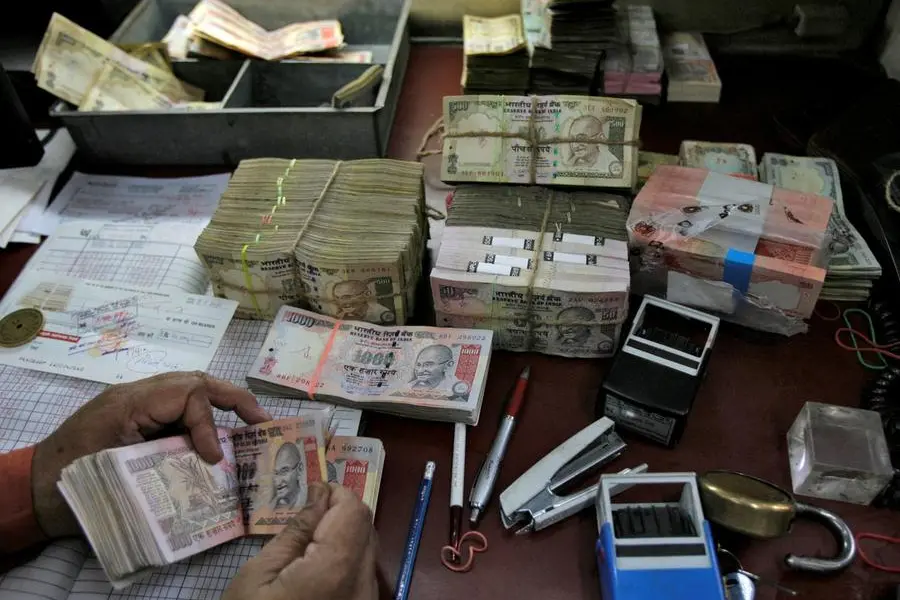PHOTO
MUMBAI - Playing the currencies of the world's two most populous nations against each other has been a popular choice for carry traders and will hold its appeal until at least the results of the U.S. elections later this year, traders and currency analysts said.
The Indian rupee's higher yield differential than the Chinese yuan -- by 5.5 percentage points on 1-year rates -- the divergent outlooks of the currencies and their low volatility have made using the yuan to fund long bets on the rupee among the most attractive carry trades in Asia.
While there is no measure or data point to gauge the size of positions on the yuan-rupee carry, a senior banker estimates it to be nearly $40 billion based on the flows of his clients.
The rising prospect of another presidential term for Donald Trump is only expected to burnish this trade's appeal.
Trump kicked off a trade war with Beijing in his first term and has indicated he would continue to target the Asian nation if he wins another term. The odds of that happening rose after the recent debate between Trump and President Joe Biden.
The yuan will "have to contend" with the likelihood of increased U.S. and China tensions and will remain under pressure, said Lloyd Chan, senior currency analyst at MUFG Bank.
China's central bank is likely to allow measured weakness in the currency heading into the U.S. elections, which may drive the offshore yuan lower towards 7.35-7.40, said Brad Bechtel, head of foreign exchange at Jefferies.
The yuan was last at 7.3062 per dollar and the rupee at 83.52.
The rupee, though, is expected to be well supported by portfolio inflows and an upbeat economic outlook in comparison to China's, which has sputtered due to the protracted troubles in the real estate sector.
All in all, the pressure on the yuan is higher than on the rupee, Societe Generale said in a note.
The common factor is both currencies have low volatility relative to their Asian peers, largely due to active forex management by the respective central banks.
That, combined with the wide interest rate differential, adds to the trade's appeal, Bechtel said.
(Reporting by Jaspreet Kalra and Nimesh Vora; Editing by Savio D'Souza)





















